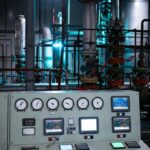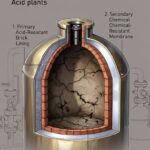Introduction: The petrochemical industry plays a critical role in various sectors, but it also faces significant environmental challenges. In this article, we explore potential startup ideas in the petrochemical domain that aim to address sustainability concerns, enhance operational efficiency, and promote innovation. However, it is important to note that the feasibility and success of these ideas require careful evaluation and market validation.
Sustainable Petrochemical Solutions: In response to growing environmental concerns, startups can focus on developing sustainable alternatives to traditional petrochemical products. By leveraging bio-based materials, renewable feedstocks, and greener processes, these startups can contribute to reducing the industry’s ecological footprint. However, extensive research, development, and collaboration with industry stakeholders are necessary to ensure the scalability and cost-effectiveness of such solutions.
Petrochemical Waste Management: A startup specializing in petrochemical waste management can offer innovative and environmentally friendly solutions for waste treatment, recycling, and repurposing. The objective is to minimize waste generation, develop efficient recycling processes, and convert waste materials into valuable byproducts. However, compliance with local regulations, technological expertise, and establishing a sustainable business model are crucial factors for success.
Digital Solutions for Petrochemical Operations: Emerging technologies such as the Internet of Things (IoT), artificial intelligence (AI), and data analytics have the potential to revolutionize petrochemical operations. Startups can develop software or hardware solutions that optimize plant processes, enhance safety measures, and improve overall efficiency. However, the integration of these technologies requires substantial investment, collaboration with industry partners, and careful implementation to ensure compatibility with existing infrastructure.
Carbon Capture and Utilization: Startups focused on carbon capture and utilization can contribute to reducing greenhouse gas emissions from petrochemical plants. By developing technologies that capture and convert carbon dioxide (CO2) into valuable products, such as chemicals or fuels, these startups can drive sustainability. However, the challenges include technological complexity, securing funding for research and development, and navigating regulatory frameworks surrounding carbon capture and utilization.
Smart Supply Chain Management: A startup specializing in smart supply chain management can leverage technologies like blockchain, data analytics, and automation to optimize logistics, inventory management, and demand forecasting. By enhancing transparency, traceability, and efficiency in the petrochemical supply chain, startups can unlock significant value. However, collaboration with industry stakeholders, addressing cybersecurity concerns, and overcoming resistance to change are critical factors for success.
Petrochemical Recycling: Startups can focus on advanced recycling techniques for petrochemical-based materials, contributing to the circular economy. By developing innovative methods to recycle plastics, rubber, or other petrochemical products, these startups can reduce waste and promote sustainable practices. However, challenges include establishing cost-effective recycling processes, ensuring the quality of recycled materials, and building a robust supply chain for recycled products.
Green Catalyst Development: Startups can explore the development of catalysts that enhance the efficiency and sustainability of petrochemical processes. By creating novel catalysts that require lower energy inputs, reduce waste generation, and enable environmentally friendly transformations, these startups can drive positive change. However, rigorous research and development, partnerships with academic institutions, and thorough testing are necessary to bring such catalysts to market.
Conclusion: The petrochemical industry is undergoing a transformation toward sustainability, efficiency, and innovation. While the startup ideas presented in this article offer potential opportunities, it is crucial to conduct thorough research, consult with experts, and evaluate market dynamics before pursuing any business venture. Startups must navigate various challenges, including regulatory compliance, technological feasibility, and market demand. By addressing these challenges and capitalizing on the potential for positive impact, startups in the petrochemical domain can play a crucial role in shaping a sustainable future for the industry.
Disclaimer: The following article provides startup ideas in the petrochemical domain for informational purposes only. It is essential to conduct thorough research and due diligence before pursuing any business venture. The success and viability of a startup idea depend on various factors, including market conditions, regulatory requirements, and industry dynamics.











